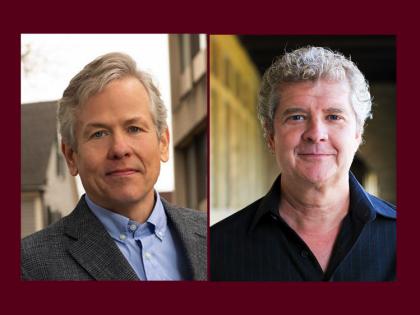It is one of the paradoxes of the Harvard experience that the admissions process demands self-promotion, but the epilogue to the admissions processattending the Collegerequires self-deprecation. Nowhere is this irony more painful than during Freshman Week, when roughly 1,600 A-earning, extracurricular-activities-participating, sterling-letters-of-recommendation-garnering National Merit finalists try to reveal the highlights of their résumés without seeming too arriviste. Enter doublespeak, that language of diplomacy in which every first-year who has answered "Boston" to the barbecue and cocktail-party question "So where did you end up going to college?" is conversant. Initial first-year conversations are often conducted in this language, the baroque elusiveness of which makes "I'm going to school in Boston" sound positively forthcoming.
| 1 I scored really high on my Advanced Placement or International Baccalaureate tests. 2 As did Iespecially in science and math. And I plan to go to medical school. 3 Also, I am an intellectual who loves learning for the sake of learning. 4 I, too, plan to go to medical school. And I was admitted to Brown. 5 How did you get into Harvard? 6 I am an overachiever. 7 Overachievement? I'll show you overachievement! 8 You've got nothing on me. 9 You want to bet? 10 Your novel? 11 Arriviste. 12 Oops. 13 Harvard. |
Roommate 1: I don't know if I'll do advanced standing. I mean, it's nice that they offer it, but...1
Roommate 2: Yeah, it's tempting. You'd get to med school that much faster.2 But it would be a shame to miss a whole year of college.3
Roommate 1: Yeah, that was what was so ultimately repellent about Brown's accelerated medical program.4
Being conversant in Harvard-style doubletalk, however, is not the same as being fluent. Conversations conducted in the coy language of implication sometimes end awkwardly when one roommate, failing to parry, lapses into her native tongue:
Roommate 1: So what are you thinking about doing extracurricularly?5
Roommate 2: I'm not really sure. I did so much in high school, and I don't really want to overextend myself here.6
Roommate 1: Oh, I know what you mean. Between debate team and student government and the swim team and the school paper, it seemed like I hardly saw my family in high school. I want to leave myself time to relax here.7
Roommate 2: Yeah, exactly. I mean, college is a time to explore8
Roommate 1: Plus, I want to have time to work on my novel.9
Roommate 2: So what did you get on your SATs?10
Roommate 1: Excuse me?11
Roommate 2: I mean, what's your novel about?12
Happily, by the time classes start, most first-years have found new interests to talk about and are able to consign their high school résumés to the files of the College bureaucracy. They shake off doublespeak and respond coyly only when catechized about where they go to school. That, after all, is the Boston13 way.







